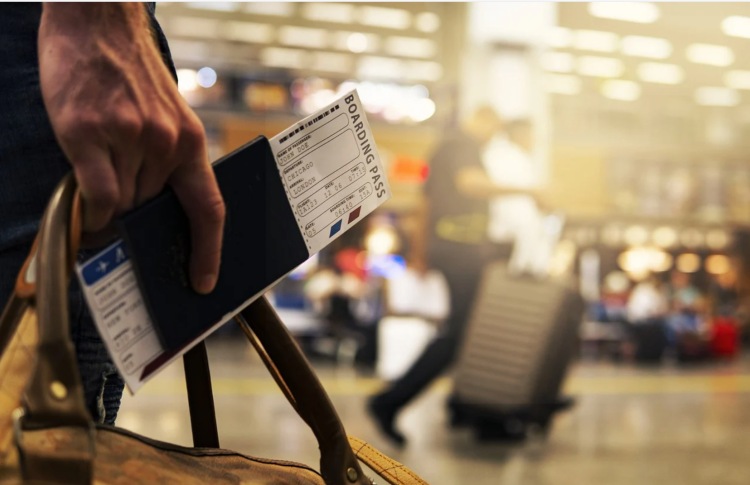Whether you’re planning on moving to a European country for several months, several years, or on a permanent basis, the better prepared you are before your move, the smoother everything will run.
You could have to apply for a visa, get travel insurance, and hire a shipping company, to name just a few things you need to do ahead of time.
Here are eight ways to start preparing for your move to Europe:

If you’re planning a move abroad to Europe, there are a few things you’ll need to keep in mind. First, remember that the process of relocating can be stressful, so it’s important to give yourself plenty of time to plan and prepare. Make sure to do your research on the different countries you’re considering, and try to visit each one before making a final decision. Once you’ve chosen your destination, start familiarizing yourself with the local culture and customs. And finally, don’t forget to secure all the necessary paperwork before making the move. With a little preparation, relocating to Europe can be an exciting and rewarding experience, check out the following tips:
1. Apply for a Visa
When moving to any European country from the U.S., you’ll need to get a work visa or a student visa if you’re planning on staying for longer than three months.
You need to apply for a visa at least six months ahead of your planned departure.
You’ll also need a valid passport, proof that you have been accepted for a job or a place at an educational establishment, the address of the place where you’re going to stay, and proof of your financial independence, such as your last three bank statements.
2. Learn the Language
Unless you’re moving to the United Kingdom, English won’t be the first language spoken in the European country you’re moving to, so you’ll want to learn a little, or a lot, of the language before you move.
If you want to meet locals, effectively communicate, and feel like you fit in, learning the local language is crucial.
It’s now easy to learn foreign languages thanks to online courses that are available 24/7. You could learn the basics by enrolling in German speaking classes, for instance, and then move on to advanced classes once you have moved location and become familiar with talking to locals.
One of the best ways to learn a new language is to immerse yourself in it as much as possible. Try to find opportunities to hear and speak the language as often as you can. This could mean listening to native speakers, watching films and television shows in the target language, or reading books and articles. It’s also a good idea to practice writing in the new language.
You can keep a journal or compose emails and messages to friends who also speak the language. And don’t be afraid to make mistakes! The more you use the new language, the more confident you will become.
3. Hire a Reputable Shipping Company
If you’re moving to a European country on a long-term basis, or even permanently, you’ll want to move many of your belongings.
With such a long journey, you need to ensure the international shipping company you choose is reliable and affordable. So, make sure you research any potential shipping company ahead of your move to find the right one for your needs.
4. Change Your Address and Redirect Your Mail
This is a small but important thing. Before you move to Europe, you need to sort out your mail before you go. Moving to a new country is always a exciting adventure. Even if you have visited the country before, there is always something new to explore. One of the first things you need to do when moving to Europe is to redirect your mail.
Depending on where you are moving, you may need to fill out a change of address form with your local post office. If you are only moving for a short time, you can also put your mail on hold. This will ensure that you don’t miss any important letters while you’re away. Once you’ve taken care of your mail, you can start planning all the other aspects of your move. Before you know it, you’ll be settled into your new home and enjoying everything Europe has to offer. You can also set up international mail redirection.
5. Take Electrical Plug Adapters with You
Another small but important thing is ensuring you’re prepared for using your electrical devices in Europe.
Different countries have different electrical usage requirements, and some have more than one type of electrical socket and plug. So, make sure you buy electrical plug adapters before you leave home.
Research what the situation is for the specific country you’re moving to. It can also be useful to have an adapter that works in any European country, as once you’re in Europe, you’re likely to travel around and see other European countries at some point, in addition to the country you’re moving to.
6. Find Out About Communication Plan Options
Being able to use your phone and laptop, or another device, in the country you’re moving to, is of course vital. So, make sure you look at the options available for the new country before you leave home.
While you could go with a pay-as-you-go service, which could be helpful for your first few days of getting settled, you’ll probably want to find an affordable and reputable local provider.
7. Get Travel Insurance
Before you move, research what the best travel insurance plan solution is for your specific situation and country to assure safe travels.
Learn about the country’s healthcare system to find out which services you could be entitled to and then compare insurance companies to get travel insurance that covers things like health, lost or stolen passports, disasters, and so on.
You need to be prepared for worst-case scenarios, so make sure you get the right travel insurance for your needs.
Assuming you’re asking why you should get travel insurance for a move to Europe, there are a few things to consider. First, while your health insurance may cover you in Europe, it may not cover all of your expenses. Travel insurance can help to fill in the gaps and provide coverage for things like medical evacuation and lost luggage.
Additionally, if you have to cancel your move for any reason, travel insurance can help to reimburse you for non-refundable expenses. Finally, travel insurance can give you peace of mind knowing that you’re protected in the event of an emergency. Whether you’re moving to Europe for work or pleasure, travel insurance is a smart investment.
8. Find Out About Practicalities for Your New Local Neighborhood
You’ll want to wait until you move to your new location to explore the area in full, as that’s part of the fun of moving somewhere new.
But there are various things you should get to know about the area where you’re going to live before you arrive.
Knowing practical things like how to use public transport, where the nearest cash machine is, where your nearest food store is, and where your local laundry facilities are, will help your transition to go much more smoothly.
We hope you found this blog post on Moving to Europe: 8 Ways to Prepare, useful. Be sure to check out our post on 8 Important Things to Consider Before Moving Abroad for more great tips!
Have Experience in the Moving Industry? Want an Additional Income Stream? Work With All Around Moving!
Join our team, moving relocation consultants, and we’ll help you profit. Unique opportunity to earn extra income and apply your knowledge and expertise in the moving industry. Click here to learn more.





